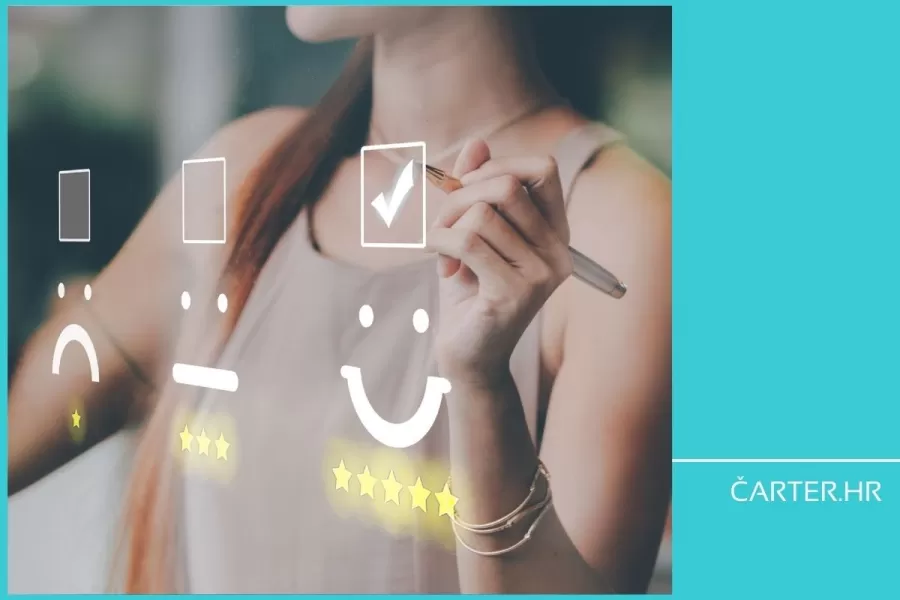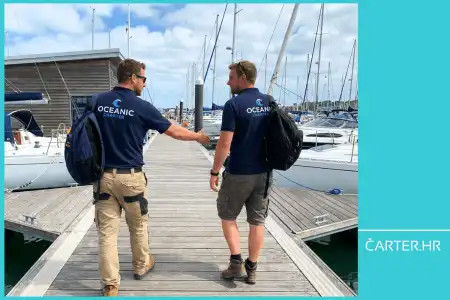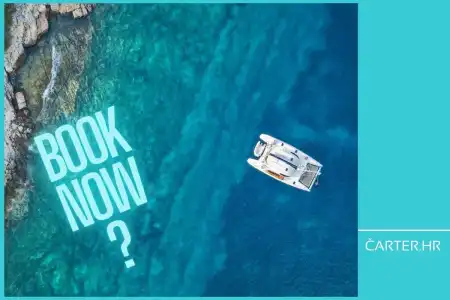
- 28.03.2023.
- User experience
Are you and your employees ready to deal with situations when the guest is unsatisfied with your service? There is education for that. However, you should know - even the complaints are possible to be professionally managed.
When I talk to clients, they often complain that employees don't know how to respond or behave when a guest has a remark or criticism. Because of this, sometimes guests' completely harmless comments become a big problem.
It's a shame because a good number of situations can be solved only if we know how to behave at that moment.
During the interactions with the clients mentioned above, I noticed the following scenarios:
- Employees don't know how to manage guests' complaints
- Owners/managers expect employees to already know this (on their own)
- Employees perceive remarks personally (or as an attack) and show it to guests (which contributes to even greater frustration or dissatisfaction of the guest)
There is a popular quote in English:
"Common sense is not common for everyone."
(My free translation: Reason is not shared by everyone.)
This is where people often laugh. I've laughed in the past too, to be honest. But now I see no reason to laugh.
Because we don't all understand things the same way, and we don't see the world with the same eyes.
As an NLP trainer, I will express myself in the language of NLP: "We don't all have the same map."
Our understanding of the world is different for all of us.
So, something that is common sense for me, i.e., "reason", does not have to be for you; what is common sense for you, does not have to be for your employees.
However, I understand my clients.
As a person who has built a career in the hospitality industry, I must admit that I have the challenge of understanding how it's not natural for a person who works with people to at least smile and be kind.
Because situations with guests or customers often could be resolved with kindness, understanding and a kind word.
Well, it's not.
And now what?

Educate your team on how to manage guest complaints
You teach them how to manage a complaint.
I hear you, see and feel that you are now saying or thinking: "Well, I don't have time to prepare education and training, let alone time to hold them!"
And I understand that.
The season is just around the corner, preparations are underway, you are probably still looking for staff, and there are only 24 hours in a day.
I have good news.
You don't have to do everything by yourself.
Just as you didn't build your yacht by yourself, nor did you produce the wine and beer served on it, you don't cook alone but have a head chef on board, so there are professionals who can train your team on how to handle guests complaints on the vessel or in the marina. In addition, they will implement a service mindset in your organization or just raise awareness of it, depending on the need.
When the staff is well-educated and aware of the importance of a service culture, they will turn dissatisfied guests who complain into happy and often delighted guests who will become your company's best ambassadors.
Who are ambassadors, and what do they do?
Ambassadors are your guests who have fallen in love with your company and recommend you to everyone, return to you and become your permanent and loyal guests. Even if they find the same, cheaper service, they will remain loyal to your business and company. Their enthusiastic recommendations bring new clients who already have a favorable opinion of you because their friends - your ambassadors - have passed it on to them.

Why is it even important to resolve a guest complaint?
It often happens that you get a loyal ambassador right after a guest's complaint has been successfully resolved. The reason for this is that, after the excellent way you handled the complaint, the guest saw and experienced that you take responsibility for mistakes (or that you tried to help even if it wasn't your fault) and that they can count on you even when things don't go well smooth.
And there you won him over and won him over to become your loyal guest.
Note: Loyalty has an expiration date. You have to keep the guest's trust with excellent service quality; otherwise, you lose the guest even though he is loyal. However, a loyal guest will forgive you for minor mistakes, but not if they are repeated several times.
It's important that everyone in the team knows how to manage complaints.
Why is that?
Have you ever had a situation when you asked something in a company or wanted to solve a problem, and the answer you got was: "I don't do that; go to a colleague." / "Go to another office." / "The other shift is responsible for that. "
How did you feel? What did you think of that organization?
That's why.
According to a survey by the Salesforce platform, 83% of consumers said they expect to solve a complex problem by talking to just one person.
(Source: Salesforce Platform Research, October 2020. N= 12,000 in 26 countries globally.)
In other words, consumers in a variety of industries said they don't like being sent from one person to another or from one office to another at a company where they've had a negative experience and want to resolve the issue or to be connected to another person on the phone.
According to the same survey, 83% of consumers stated that because of a positive experience with the company (positive customer service experience), they are more likely to buy from them again.

What if the complaint was not resolved successfully or you didn’t respond?
The consequences of an unresolved complaint, an attempt to resolve it inadequately, or not reacting to a complaint is the loss of the guest and bad reviews. Due to bad reviews, you will lose not only one guest (or group of guests) but also potential guests who decide to buy a service from someone else instead of you after reading them.
And nowadays, a bad review can be read by the whole world.
According to research, bad experiences are talked about more than positive experiences: 95% of people who have had a negative experience will tell others about it, and 54% of them will talk about it more than five times.
(Source: Zendesk research related to call centres, n=1044.)
Surely you know that because of bad reviews, there is a reduction (or loss) of the company's good reputation, consequently leading to a loss of income.
And all because of ignorance about managing complaints or perhaps negligence resulting in unprofessional handling of guests' complaints.
How to handle guests' complaints professionally?
Now you know you have a choice. Educate the staff yourself or call in the help of an external professional trainer.
If you still have time and decide to do it yourself, here's how.
First, it would be good to adopt a particular way of thinking to help you deal with the complaint.
As it is not possible to go into the depth of the topic in the article as in the workshops, I will mention one fundamental fact:
Consider a complaint as an opportunity to correct a mistake and improve the quality of your service.
If that sounds strange to you, consider the following research data:
Only 1 out of 26 consumers complain on the spot where they have a negative experience.
(Source: Quoted in the article according to the annual survey by Esteban Kolsky, customer strategies and researcher – 2017)
Others who didn't complain directly to you will tell others about their negative experience without you even knowing that they were dissatisfied.
OK, now you know the benefits of a well-handled complaint, the consequences of an unresolved or poorly handled complaint, and have a mindset for approaching grievances.
You are ready for the complaint management steps:
- Actively listen to the guest
Don't interrupt him while he is talking, let him tell you everything he wants to tell you. Ask if something is not clear and, make sure you understand what the guest wants to say.
- Apologize - always
If it's not your fault, express your regret that the guest is in a particular situation and offer to help.
- Understanding and empathy
Put yourself in the guest's shoes and show understanding towards his problem.
- Action and solution
Solve the problem as soon as possible. It's best to solve it while the guest is still with you. If you can't do it right away, then clearly communicate to the guest when it will be done and stick to the deadline.
- Thank the guest for pointing out the situation
Please always say thank you. This gives the guest credit for helping you improve the quality of the service.
- Follow up
Afterwards, check with the guest whether what you did was OK, whether he was satisfied, etc., depending on the context of the situation. And, of course - let him know you are still available for him.
It would be good to start preparing and educating the staff immediately, and in any case before the season, instead of waiting until the guests and crowds are there and the team is tired.
Shep Hyken, a well-known expert in customer service, said:
"A complaining customer can be your best opportunity to show how good you are... and turn them into an evangelist (ambassador) customer."
I wish you a season with as few complaints as possible, and if some do happen, I am sure that this text will be helpful to you.
Categories of trends
- News
- Sale
- Marketing
- SEO
- Web design
- Social media
- Technology
- Regulations
- Management
- Education
- Finances
- User experience
Newsletter
Sign up for the newsletter and receive the latest trends and tips straight to your inbox




